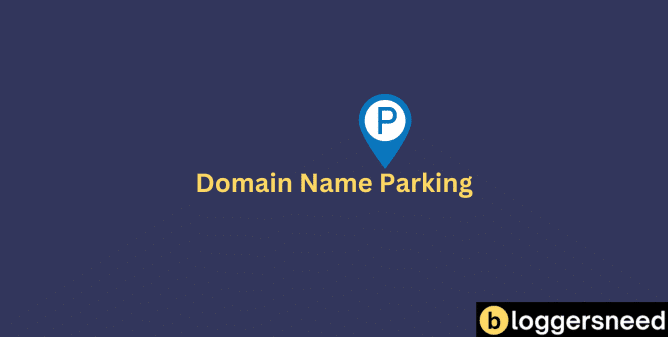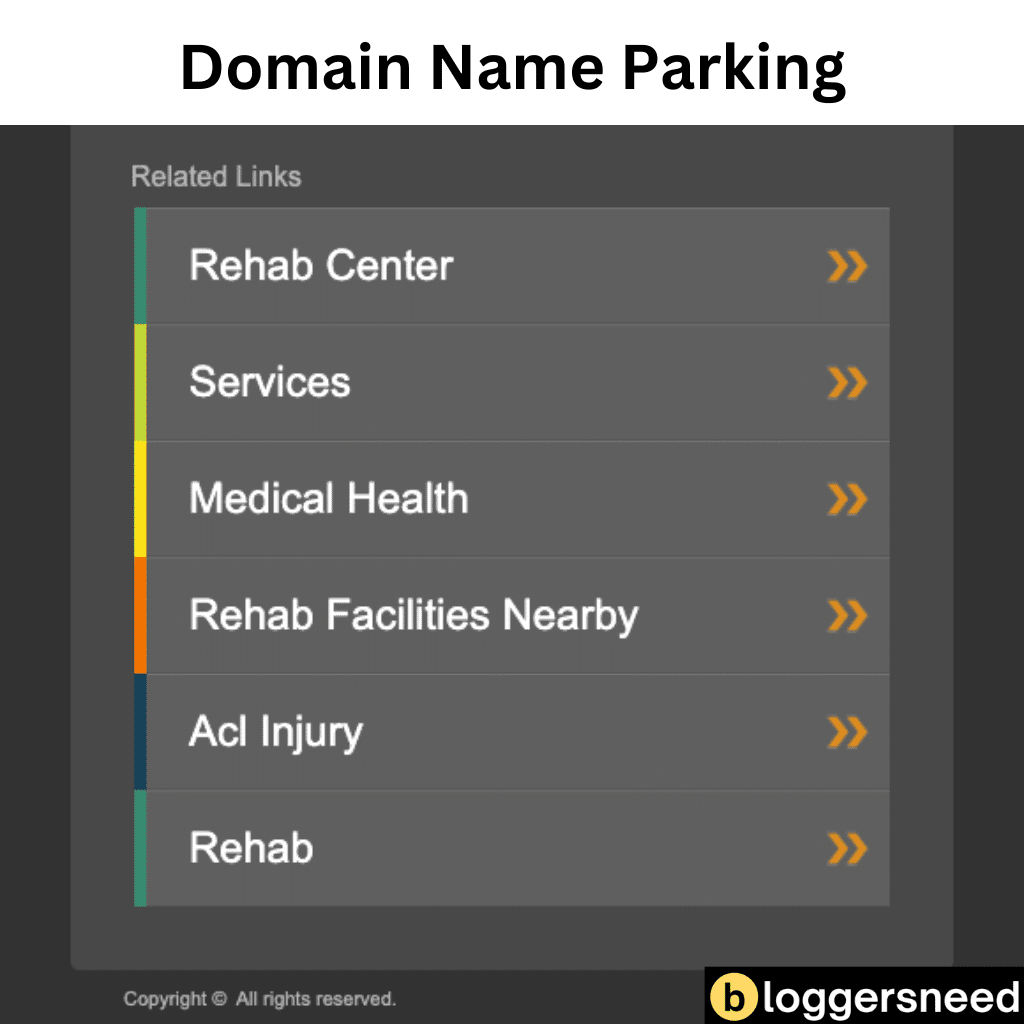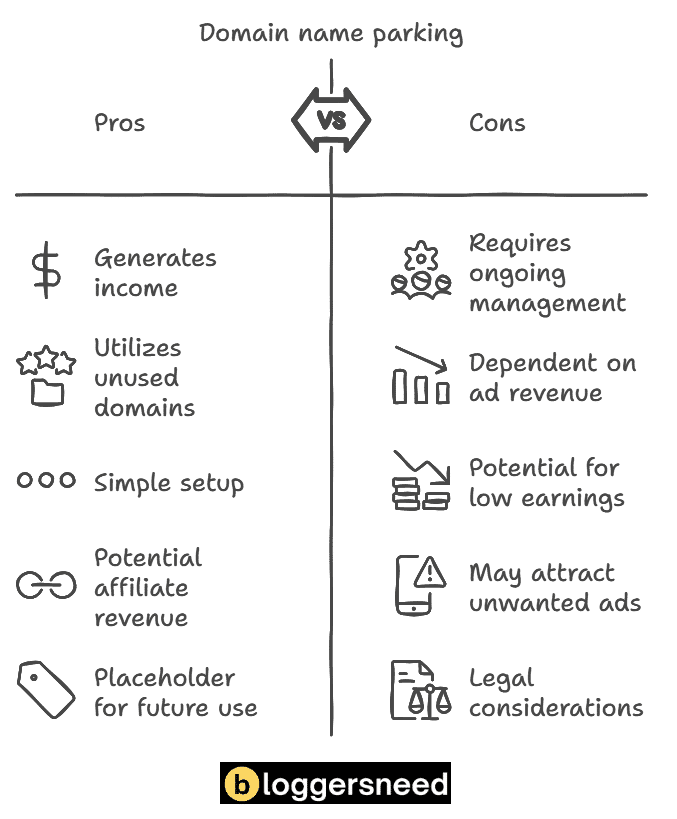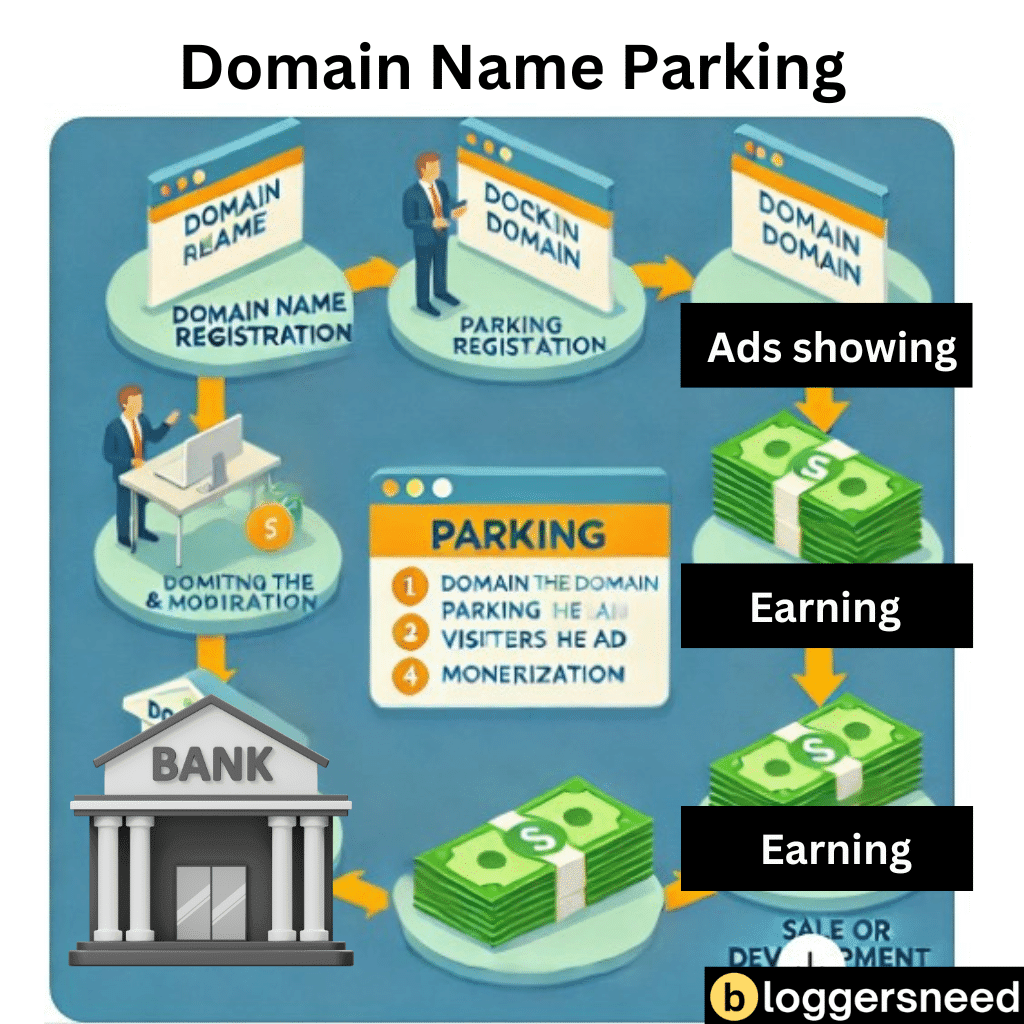
Domain name parking is the process of registering a domain without linking it to a website or email, reserving it for future use or preventing others from registering it. This strategic move protects your brand identity, secures valuable web addresses, and generates passive income through advertisements. However, it comes with drawbacks like ongoing renewal costs, potential negative impacts on SEO, and legal risks. To park a domain, you register it and link it to a placeholder page, often through services like GoDaddy or Bodis.com. By understanding how domain parking works, you can effectively manage your digital assets and explore further strategies.
Table of Contents
What is Domain Name Parking?
Domain name parking refers to the practice of registering an Internet domain name without associating it with any services like a website or email.
You might choose to park a domain to reserve it for future use, preventing others from registering it, or to monetize traffic by displaying ads.

This strategy can be particularly useful if you have a business idea and want to secure the domain name before you’re ready to launch your website.
What Are the Benefits of Domain Name Parking?
The benefits of domain name parking include protecting your brand identity by securing related domain names, reserving desirable web addresses for future use, and monetizing your unused domains through advertising.
Parked domains can also provide an immediate online presence, which is beneficial for marketing and promotional campaigns.
They’re cost-effective, easy to set up, and can offer investment opportunities through cash parking or domain flipping.
What Are the Drawbacks of Domain Name Parking?
Maintaining a parked domain can become costly over time, as you’ll need to pay for renewals without generating any direct revenue from it.
Moreover, a parked domain can negatively impact your branding if it displays irrelevant ads or remains inactive for too long, potentially alienating visitors and diminishing interest in your business.
Legal implications arise when cybercriminals exploit parked domains for malicious activities, such as phishing or distributing malware, which can lead to brand defamation and legal issues.
Effective parking strategies are essential to mitigate these risks.

How Does Domain Name Parking Work?
Domain name parking is a strategic approach where you register a domain name without immediately linking it to a website or email hosting service.
You fundamentally reserve the domain for future use, protecting your brand identity and preventing cybersquatting.
To park a domain, you select a registrar and configure the domain to display a placeholder page, which can include advertisements for monetization.
This setup allows for traffic generation and keyword optimization, enhancing the domain’s value.

It’s vital to evaluate legal considerations and guarantee that your domain parking practices comply with relevant laws.
Additionally, domain valuation tools can help you determine the worth of your parked domain.
What Are the Different Types of Domain Parking?
When considering domain name parking, you’ll encounter two primary types: monetized and non-monetized parking.
Monetized parking involves displaying advertisements on a parked domain to generate income, while non-monetized parking typically features a placeholder or “under construction” message without generating revenue.
For example, services like GoDaddy and Namecheap offer monetized domain parking options, whereas non-monetized parking might simply hold a domain for future use.
1. Monetized Parking
You can generate revenue from your domain name through monetized parking. This involves using advertising networks to display ads on your parked domain, earning money from clicks or impressions.
To maximize revenue, you’ll need to conduct traffic analysis to understand your domain’s value. Domain valuation is essential in determining the potential revenue you can generate. For example, if your domain receives high traffic, you can use advertising networks like Google AdSense to display targeted ads.
2. Non-monetized Parking
Non-monetized parking primarily involves reserving a domain without associating it with any services or content, often to protect your brand or reserve the domain for future use. This approach is essential for brand protection and maintaining control over your digital assets.
By parking your domain non-monetized, you guarantee that your online identity remains secure and that you have a placeholder for future projects. This method is particularly useful for non-profit initiatives or personal projects where immediate monetization isn’t a priority.
It allows for effective domain management, guaranteeing that your domain remains under your control until you’re ready to develop it.
Why Do Individuals and Businesses Park Domain Names?
You park domain names for various strategic reasons. You might reserve a domain for future use, ensuring your desired business name is available when you’re ready to set up.
Additionally, parking domains helps prevent cybersquatting, where someone else might register your desired name to sell it back to you or use it for malicious purposes.
Reserving a Domain for Future Use
Many individuals and businesses park domain names to reserve them for future use, which is a common practice in the digital landscape.
By doing so, you can secure a domain that aligns with your future planning, ensuring it’s available when you’re ready to start a new project or expand your online presence.
This domain strategy also offers investment potential, as you can sell the domain at a higher price if its value increases over time.
Additionally, parking a domain helps with brand protection by preventing competitors from registering a similar domain.
For example, if you’re planning to launch a new product line, you can reserve a domain related to that product to safeguard your brand’s online identity.
Preventing Cybersquatting
Preventing cybersquatting is another significant reason individuals and businesses park domain names. This practice safeguards your brand from malicious domainers who register similar domain names to deceive your customers.
Effective cybersquatting prevention involves understanding the legal implications, such as the Anticybersquatting Consumer Protection Act (ACPA), which allows trademark owners to take legal action against cybersquatters. Trademark enforcement is essential, as it strengthens your position in legal disputes.
Domain monitoring services can help detect potential cybersquatting cases. Proactive strategies include registering variations of your domain name, using secure domain registration practices, and educating employees and customers about the risks of cybersquatting.
Regularly updating passwords and enabling two-factor authentication also prevent unauthorized domain transfers. By taking these steps, you can protect your brand’s online presence and prevent the loss of customer trust and revenue.
Monetizing Unused Domains
Monetizing unused domains is a practical strategy for individuals and businesses looking to capitalize on their dormant digital assets.
By leveraging domain valuation, traffic generation, keyword optimization, and branding strategy, you can transform your unused domains into profitable investments.
For instance, you can park your domain with services like Bodis.com or Redirect.com, which display targeted ads and generate revenue based on clicks or impressions.
Another approach is to build a simple website with affiliate links or Adsense, which can increase the domain’s value over time.
Additionally, you can redirect your unused domain to an existing site, boosting traffic and potential sales.
Reserving a Domain for Future Use
Reserving a domain for future use is a strategic move that allows individuals and businesses to secure a desired domain name before it’s snatched up by someone else.
This future planning guarantees that the domain registration is in place, safeguarding the investment in your digital assets. It’s an investment strategy that helps in establishing a strong online branding.
For example, you can purchase a domain name that’s available and then park it until you’re ready to use it for your business. This way, you can prevent others from registering the domain and secure your brand identity.
You can typically register a domain name for up to 10 years, which gives you ample time to develop your business plan and set up your website.
How to Park a Domain Name?
To park a domain name, you need to register it with a domain registrar and then set up a parking service to display advertisements or other content on the domain.
The amount of money you can earn through domain name parking varies depending on the traffic your domain receives and the revenue share offered by the parking service, with some services offering splits like 50/50 or 60/40.
For example, services like Sedo Parking and GoDaddy can help you monetize your unused domains by displaying targeted ads and managing the ad revenue on your behalf.
How Much Money I Can Earn Through Domain Name Parking?
Let’s explore the topic of how much money you can earn through domain name parking. The revenue potential of domain parking largely depends on your domain valuation, parking strategies, and market trends.
To maximize earnings, you need to invest in domains with high commercial appeal or common keywords. For instance, a domain like “cars.com” was sold for $872 million in 2014, highlighting the potential for significant returns.
However, typical earnings from parked domains are more modest, often in the range of $5 to $25 annually, with only up to 10% of traffic resulting in ad clicks.
Understanding investment risks and choosing the right domain parking service are essential to optimizing your returns.
Does Domain Parking Affect Search Engine Rankings?
The domain name affects SEO, and domain parking can impact your search engine rankings. It is essential to understand how this practice influences your online visibility.
When you park a domain, search engines like Google may view it as inactive or lacking valuable content, which can negatively affect your SEO strategies. This is because parked domains often lack the necessary keyword optimization and traffic analysis data that search algorithms use to rank websites.
In addition, domain authority may suffer as a result of parking, as it disrupts the link equity and user experience.
To mitigate these effects, consider installing a basic website setup with essential SEO plugins and content, and use 301 redirects to preserve SEO value and maintain user experience.
Affiliate Disclosure: Some of the links in this post are affiliate links, which means I may earn a small commission if you make a purchase through those links. This comes at no extra cost to you. Thank you for your support!
